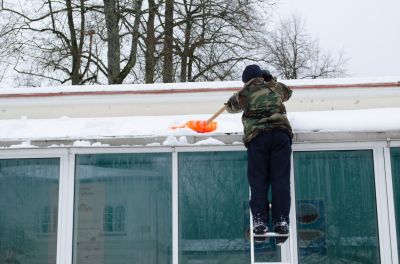Favorite Roofing Service Tools for Enhanced Job Site Productivity
Browse a curated list of trusted tools that help roofing teams complete projects smoothly and effectively.
 In the realm of roofing services, having access to the right products is essential for ensuring quality work and long-lasting results. From installation to maintenance, a variety of specialized tools and materials are used to address different aspects of roofing projects. Whether you are a professional contractor or a dedicated DIY enthusiast, understanding the range of products available can help you make informed decisions tailored to your specific needs.
In the realm of roofing services, having access to the right products is essential for ensuring quality work and long-lasting results. From installation to maintenance, a variety of specialized tools and materials are used to address different aspects of roofing projects. Whether you are a professional contractor or a dedicated DIY enthusiast, understanding the range of products available can help you make informed decisions tailored to your specific needs.
Top Overall Option
Roofing Membrane System
A roofing membrane system serves as a foundational layer in many roofing projects, providing a waterproof barrier that protects the underlying structure. These systems come in various materials such as rubber, thermoplastic, and modified bitumen, each offering different advantages in terms of flexibility, durability, and ease of installation. They are designed to withstand weather exposure and prevent leaks, making them a versatile choice for different roofing applications. Proper installation and material selection are key to maximizing the effectiveness of a roofing membrane system, which can be adapted to both residential and commercial projects in West Linn, OR.
Types of Products For Roofing Service
Roofing Shingles
Various types of shingles including asphalt, metal, and slate are used to cover roofs, offering different aesthetic and functional options.
Roofing Underlayment
Protective layers installed beneath shingles or other roofing materials to provide additional waterproofing and insulation.
Roofing Sealants and Adhesives
Used to seal joints, seams, and flashing to prevent water infiltration and secure roofing components.
Fasteners and Nails
Specialized nails and screws designed for roofing applications to ensure secure attachment of materials.
Roofing Tools
Includes nail guns, roofing knives, and other hand tools essential for efficient installation and repair.
Flashing Materials
Metal or flexible flashing used around chimneys, vents, and edges to prevent leaks.
Roof Ventilation Products
Vents and exhaust fans that promote airflow and help regulate temperature and moisture inside the attic.
Scaffolding and Ladders
Safety equipment that provides secure access to elevated roofing surfaces during work.
Roof Coatings
Protective coatings applied over existing roofs to improve reflectivity and extend service life.
Gutters and Downspouts
Components that channel rainwater away from the roof and foundation, preventing water damage.
Roof Inspection Cameras
Digital tools used to identify issues in hard-to-see areas, facilitating accurate assessments.
Weather-Resistant Barriers
Materials designed to resist wind-driven rain and snow, enhancing overall roof durability.
Ice and Water Shields
Special membranes installed in vulnerable areas to prevent ice dam formation and water infiltration.
Roof Anchors and Safety Harnesses
Safety gear essential for fall protection during roofing work.
Popular Choices
Widely used for residential roofing, offering a balance of affordability and durability.
Known for longevity and resistance to harsh weather conditions, suitable for various building types.
Essential for waterproofing, available in different thicknesses and materials.
Convenient for sealing small leaks and joints, compatible with multiple roofing materials.
Helps speed up installation and ensures consistent fastening of shingles and other materials.
Complete sets for flashing around chimneys, vents, and skylights to prevent leaks.
Popular for improving attic ventilation and reducing moisture buildup.
Used for applying protective coatings over roofs efficiently.
Includes gutters, downspouts, and brackets to manage rainwater runoff effectively.
A trending choice for safe and reliable access during roofing projects.
Popular for quick fixes and sealing around flashing and vents.
Increasingly used in colder regions to prevent ice dam formation.
Trending for accurate assessment and maintenance planning.
Often paired with roofing projects to improve energy efficiency.
Roofing projects typically require durable materials that can withstand the elements, as well as tools that facilitate precise installation and repair. Common products include roofing membranes, sealants, fasteners, and safety equipment. Each product type plays a critical role in ensuring the integrity of a roof, preventing leaks, and extending the lifespan of roofing structures. Proper selection and application of these products can significantly influence the success of a roofing project.
Beyond basic materials, specialized tools such as roofing nailers, scaffolding, and weather-resistant gear are often necessary for efficient and safe work. It is also important to consider the compatibility of products, ease of use, and the specific requirements of the roofing system being installed or maintained. When shopping for roofing products, paying attention to quality, durability, and user reviews can help identify options that meet professional standards.
In West Linn, OR, where weather conditions can vary and influence roofing needs, selecting appropriate products becomes even more crucial. Local suppliers often carry a range of options suited for the regional climate, ensuring that your roofing projects are resilient and reliable. Whether you're addressing minor repairs or undertaking a full roof replacement, choosing the right products can contribute to a successful and long-lasting roofing solution.
Key Buying Considerations
- Compatibility with existing roofing materials and systems
- Durability and resistance to local weather conditions in West Linn, OR
- Ease of installation and maintenance requirements
- Material lifespan and warranty options
- Waterproofing and sealing capabilities
- Weight and structural support needs
- Fire resistance ratings and safety standards
- Cost-effectiveness and overall value
- Availability of replacement parts and accessories
- Environmental resistance, including UV and wind damage
- Compatibility with insulation and ventilation systems
- Ease of handling and transportation
- Supplier reputation and customer support
- Product certifications and industry standards
- Ease of disposal or recycling after service life
